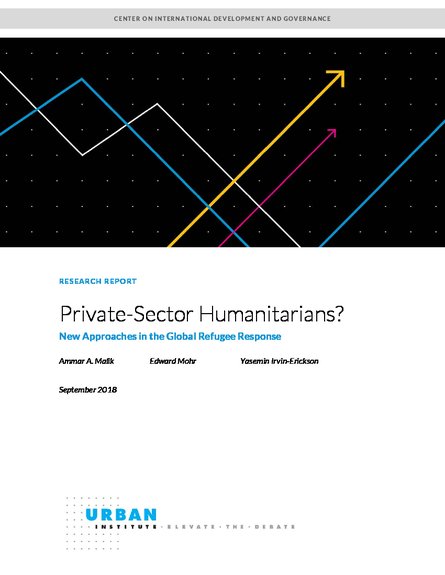
With the global displaced population exceeding 68 million, the global humanitarian response system is under unprecedented stress. With widening funding gaps and no resolution in sight, new solutions are needed to address the needs of over 68 million displaced people worldwide. The private sector’s innovative and financial capacity is emerging as one such avenue, resulting in dozens of partnerships with local and international non-profits. Depending on local policy environments, such working arrangements create both opportunities and risks for partners and hosts. This report is an attempt to learn lessons from existing experiences and offer insights on what works under given circumstances. Through desk research on existing partnerships, semi-structured interviews with key stakeholders, site visits with partners in Jordan and Uganda, expert roundtables, and public discussions, we gather insights on both conceptual and practical aspects of partnerships benefiting refugees. We introduce a conceptual framework on the variety of options available to partners and offer recommendations for organizing win-win partnerships in the future.
